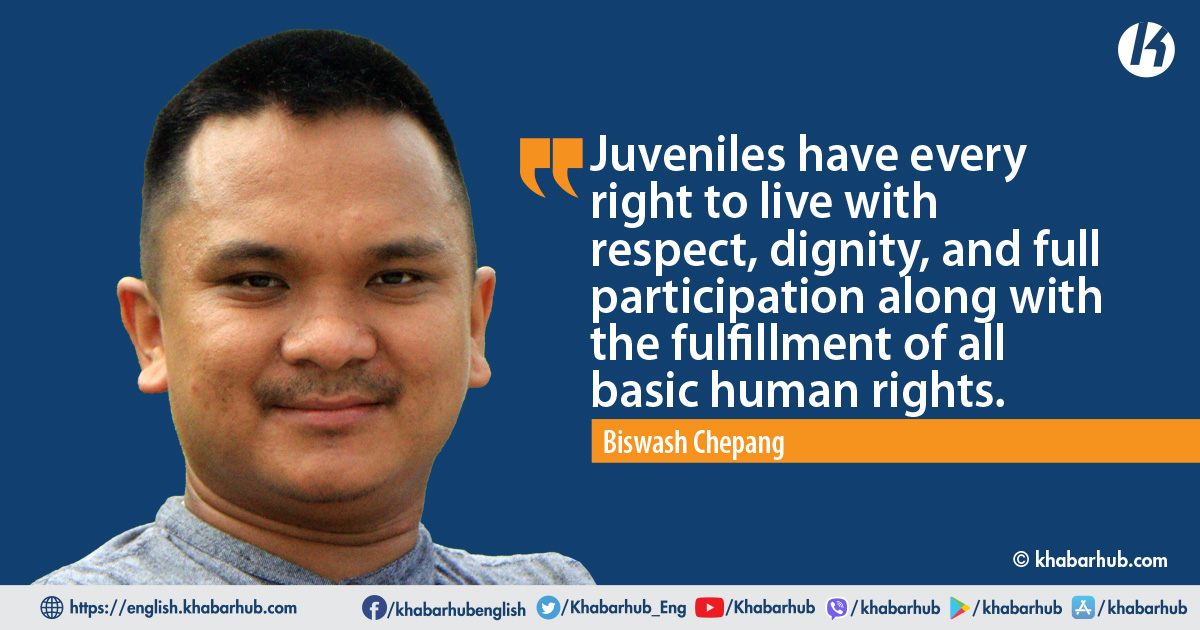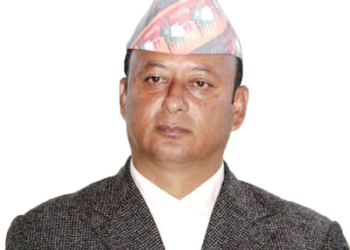Soon after my graduation in Social Work in 2015, I began working as a social worker in a Juvenile Correction Home, where I gained firsthand experience working with 60-80 Juveniles.
A Juvenile Correction Home is a facility especially designed for children in conflict with the law that aims to promote their holistic development through vocational training, education, and personality development.
The Correction Home also prioritizes physical and mental well-being by offering recreational activities, psychosocial counseling, and personalized care.
Despite the potential for social workers to make a meaningful impact, social work remains a developing profession in Nepal.
In spite of its international recognition, it has yet to establish itself as a recognized profession in the country.
As such, it is crucial that Nepal’s government takes steps to officially recognize social work as a profession.
This recognition would help to legitimize the profession and create opportunities for social workers to contribute to the betterment of society in Nepal.
As a social worker, I have faced a number of dilemmas while working with juvenile offenders in my day-to-day work practice such as the choice between individual rights/ welfare, and public welfare, equality and diversity, structural oppression, and the boundaries of professional roles.
Social work is currently the only recognized profession specified for the juvenile justice system in Nepal. However, there exist several nuanced distinctions between social work practices within the system.
This article highlights the challenges that social workers face when working within the juvenile justice system and recommends that both social workers and relevant authorities take necessary action to address these challenges.
By doing so, the system can be improved to better serve the needs of juveniles in conflict with the law, and social workers can be better supported in their efforts to make a positive impact within this context.
The Act relating to Children 2075 (2018) of Nepal recognizes the critical role of social workers in the juvenile justice bench, alongside psychosocial counselors and district judges.
This legislation provides a framework for designing and implementing child-focused programs that hold society and stakeholders accountable to the needs of children.
The juvenile justice system acknowledges that children under 18 may not possess the maturity to distinguish right from wrong, hence requiring separate laws to address children in conflict with the law.
This system encompasses unique sentencing guidelines, court structures, juvenile secure detention facilities, and other components to ensure that children receive special protection and support from adults to safeguard their rights.
According to the International Federation of Social Workers (IFSW) 2014, “Social work is a practice-based profession and an academic discipline that promotes social change and development, social cohesion, and the empowerment and liberation of people.
Principles of social justice, human rights, collective responsibility, and respect for diversities are central to social work.”
Social workers being frontline worker has multiple roles ranging from problem-solving, interacting, negotiating and discussing issues faced by a child.
A social worker has a crucial role to ensure the human rights of children, children’s safety, healthy development and overall protection.
Professional social workers can help reduce the incidence of abuse and neglect and support families to raise their children to their full potential.
The gravity of social problems that exist in sociality can be in a different context for different people, hence different ways of grasping the problem should be developed. Hence culturally sensitive practice is needed to understand the intervention in the practice.
Unlike any other professional social worker also goes through tough times and faces ethical dilemmas in deciding what is good for the client in the juvenile justice system and particularly in a juvenile correction home.
As a social worker, I have faced a number of dilemmas while working with juvenile offenders in my day-to-day work practice such as the choice between individual rights/ welfare, and public welfare, equality and diversity, structural oppression, and the boundaries of professional roles.
Social work without a legal entity in Nepal
Social work is poorly understood and does not have a legal entity in other areas with the exception of the juvenile justice system in Nepal.
A social worker does not have a specialized position for specific work in their domain. Hence, one cannot proudly introduce themselves as a ‘social worker’’ in any other area as Nepal is yet to gain legal recognition in any other profession as a social worker.
The general public is not informed about the position and roles of a social worker in Nepal, which sets a gap between juveniles and social workers.
Social workers in a powerless position
A social worker’s involvement is necessary as early as possible from the time when children come into contact with police into the court process with the child and their family will aid in understanding the social background.
The social worker feels powerless not to have any influence on the children’s voices from the time of prosecution, trial, and hearing in court. Social workers cannot directly intervene in cases of child abuse, sexual abuse, children’s safety, and violence.
It falls under legal jurisdiction which is handled by the government without the involvement of social workers. One of the pertinent issues faced by a social worker in practice is the lack of enough support from the local municipality and government offices.
The government neither has any support nor say about the profession. It does not have any position for social workers in government.
Involving social worker who acts as mediators and counselors in the early stage helps to understand the background, and prepare the social inquiry report to assist the judicial process to make decisions taking into account each situation in the best interest of the child and the community.
Culturally sensitive social work practice
Juveniles come from diverse communities ranging from the Himalayan region to the southern belt and east to west part of Nepal.
This system encompasses unique sentencing guidelines, court structures, juvenile secure detention facilities, and other components to ensure that children receive special protection and support from adults to safeguard their rights.
Hence each of them is brought up in a separate way. A social worker in Nepal has to work in different rural settings with the vulnerable group who are deprived of basic rights and who are living in poverty.
Hence social work interventions need to be negotiated and local can be translated into the practice as developing culturally responsive and indigenous practices.
The gravity of social problems that exist in sociality can be in a different context for different people, hence different ways of grasping the problem should be developed. Hence culturally sensitive practice is needed to understand the intervention in the practice.
The Act relating to Children 2075 (2018) of Nepal recognizes the critical role of social workers in the juvenile justice bench, alongside psychosocial counselors and district judges.
This legislation provides a framework for designing and implementing child-focused programs that hold society and stakeholders accountable to the needs of children.
The juvenile justice system acknowledges that children under 18 may not possess the maturity to distinguish right from wrong, hence requiring separate laws to address children in conflict with the law.
This system encompasses unique sentencing guidelines, court structures, juvenile secure detention facilities, and other components to ensure that children receive special protection and support from adults to safeguard their rights.
(Biswash Chepang holds a master’s degree in social work from the University of Lincoln, UK and currently pursuing MPhil in Development Studies at Kathmandu University)









Comment